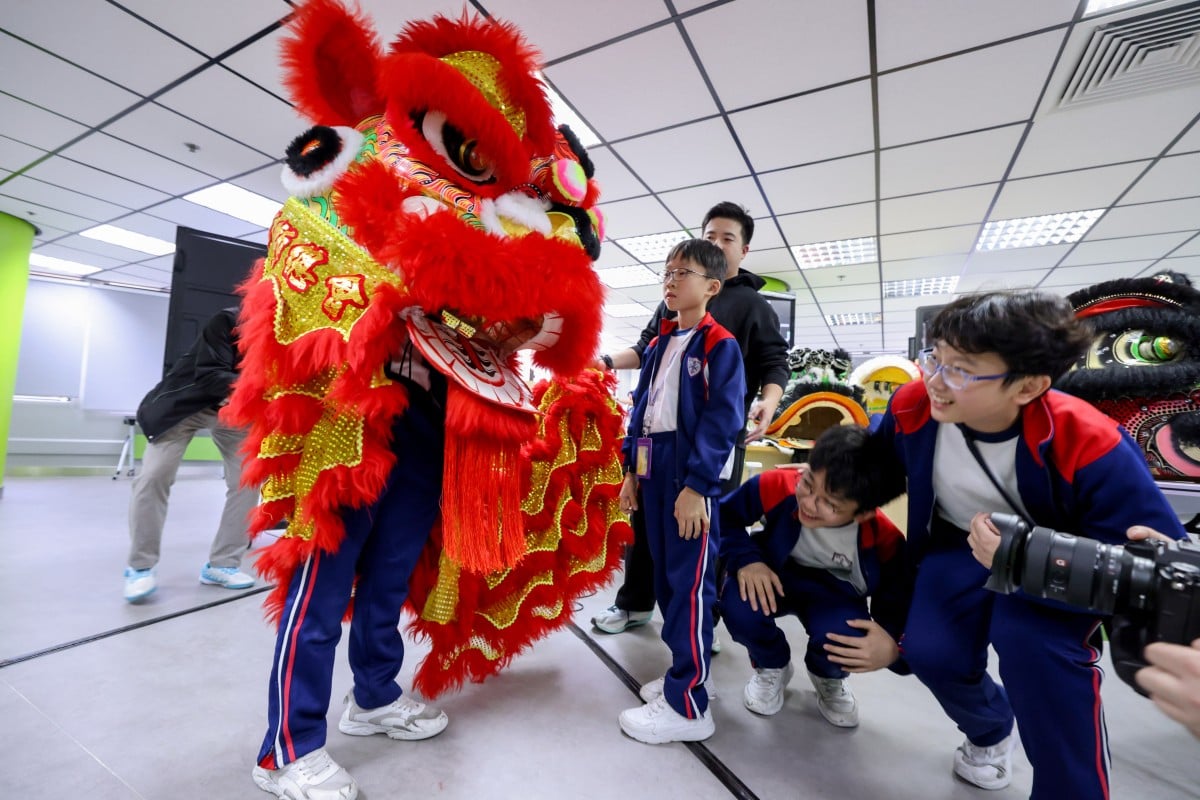 Hong Kong researchers use virtual reality and AI to preserve and promote Chinese martial arts and lion dance traditions, making them accessible globally. Photo: Nora Tam
Hong Kong researchers use virtual reality and AI to preserve and promote Chinese martial arts and lion dance traditions, making them accessible globally. Photo: Nora TamA university research team in Hong Kong is using virtual reality and artificial intelligence to promote Chinese martial arts, as well as dragon and lion dance traditions.
The research project by Hong Kong Shue Yan University involved the creation of a virtual building based on 3D scans of two local martial arts associations.
The finished project allows players to virtually interact with various elements, including lion dance heads and historical photos, with notes providing stories explaining the context of the items.
The research team has also created a chatbot powered by artificial intelligence that allows users to ask questions about martial arts. It will cover dragon and lion dances in the future.
The answers are based on interviews totalling 200,000 words conducted with seven senior masters of tai chi and wing chun.
“We want to create this virtual space for everyone who is interested in these legacies, no matter where they are in the world, to be able to access and learn more about the culture,” said Lee Ka-man, associate professor of practice at the department of journalism and communication, who led the effort.
The project was launched in 2022, with the aim of taking advantage of digital technology to preserve Chinese martial arts culture and sports in Hong Kong.
5 pop culture nods to Dragon Boat Festival from sci-fi to Animal Crossing
The first phase of the project focused on researching the history of wing chun, while the second phase centred on tai chi, and the third on dragon and lion dances.
The research team visited the Chinese Martial Arts Dragon and Lion Dance Association of Hong Kong five times and the Ving Tsun Athletic Association 10 times to carry out the research needed to virtually replicate the spaces.
While both associations are located in Mong Kok, the virtual building’s design was inspired by the local architectural style dominant in the last century in Sham Shui Po.
The final project was based on 10,000 photos and 10,000 pages of documents, according to the research team.
“Martial arts is not just about fighting or performance. It is a culture rooted in Chinese history, a mix of mind cultivation and physical training,” said Kong Pui-wai, the president of the Chinese Martial Arts Dragon and Lion Dance Association of Hong Kong.
“We want to convey the right Chinese martial arts concept to the public through this project.”
Kong helped the research team by providing documents from the association dating back to the last century and allowing them to scan the association’s physical location.
He estimated that between 80,000 and 100,000 people in Hong Kong had learned the traditions of the dragon and lion dances, but many of them were elderly and some could no longer perform the demanding physical roles.
Kong was encouraged however by the number of younger people taking an interest in the practices, especially after the government began promoting the transmission of traditional Chinese culture.
But Dennis Lee Yuk-cheong, chairman of the Ving Tsun Athletic Association, expressed concerns about how older residents would receive the new approach to passing down the traditions.
“This is a very new attempt with the latest technology and not every martial arts senior will approve this,” Lee said.
But Lee Ka-man said an exhibition staged in 2022 featuring an interactive game based on wing chun had become popular among students.
Lee said the success of the show had encouraged his team to launch the virtual project.
